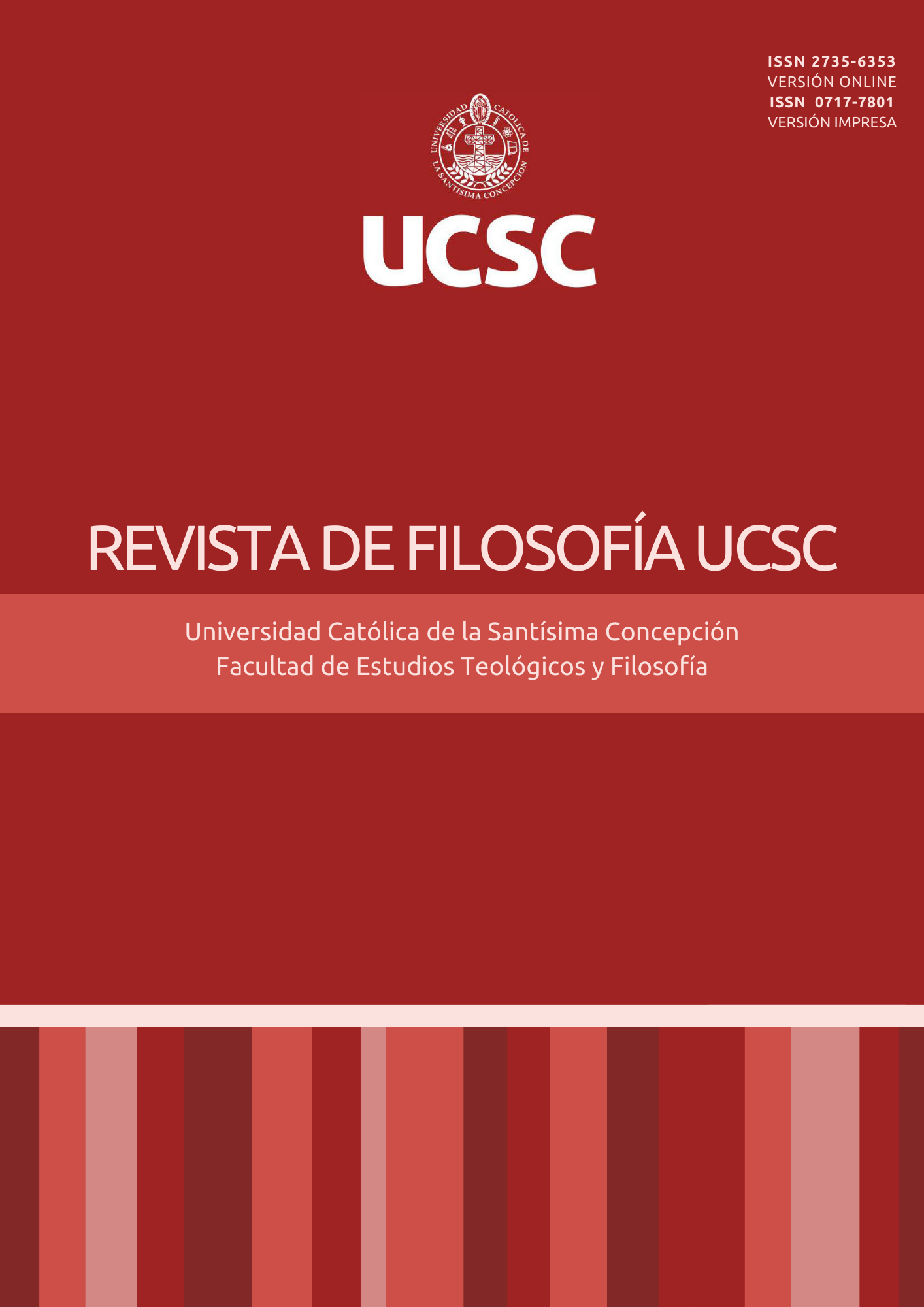Filosofía de la inactividad: sobre la noción de vida contemplativa en Tomás de Aquino y Byung-Chul Han
Contenido principal del artículo
Resumen
En el siguiente artículo se formulan algunas indagaciones en torno a la noción de vida contemplativa como filosofía de la inactividad dentro del pensamiento de Byung-Chul Han, tomando como referencia a Tomás de Aquino, con el objetivo de destacar la vigencia del pensamiento tomista y valorar su innegable influencia en la historia de la filosofía. Asimismo, se busca proponer cómo la vida contemplativa es el fin de la vida humana, logrando integrar, además, un vínculo con el reposo festivo, que es propio de la religión. En virtud de lo mencionado, este artículo se divide en dos apartados: primero, se describe una consideración general acerca de la noción de vida contemplativa desde la visión tomista. Segundo, se muestra la interpretación que realiza Byung-Chul Han de la noción de vida contemplativa de Tomás de Aquino como parte de su fundamento filosófico de la inactividad.
Detalles del artículo
Sección

Esta obra está bajo una licencia internacional Creative Commons Atribución-NoComercial 4.0.
La Revista de Filosofía UCSC es de acceso abierto y no cobra por publicar en ella. Además, regula su política de Derechos de Autor y de acceso a sus archivos de acuerdo con la Licencia Pública Attribution-NonCommercial 4.0 International (CC BY-NC 4.0), por tanto, se permite compartir (reproducir y distribuir el material en cualquier medio o formato) y adaptar (modificar, transformar y crear a partir del material) siempre y cuando se de crédito adecuadamente, se incluya la cita con los datos correspondientes. Además, no está permitido utilizar el material con fines lucrativos.
Cómo citar
Referencias
Arendt, H. (2009). La condición humana. Paidós.
Almeyda, J. (2022). Prácticas de la amabilidad: una interpretación del pensamiento de Byung-Chul Han. Areté, 34 (2), 291-318. https://doi.org/10.18800/arete.202202.001
Almeyda, J. (2023). Hacia una ética del jardín: Estudios filosóficos sobre el pensamiento de Byung-Chul Han. Ediciones UIS
De Aquino, S.T. (1968). Suma contra los gentiles II. BAC.
De Aquino, S.T. (1994). Suma de teología IV. BAC.
El cristiano en el mundo: En el Centenario del nacimiento del Beato Josemaría Escrivá (1902-2002): XXIII Simposio Internacional de Teología de la Universidad de Navarra / edición dirigida por José Luis Illanes... [et al.]. Servicio de Publicaciones de la Universidad de Navarra, 2003, pp.429-442. https://dadun.unav.edu/bitstream/10171/5515/1/Actas%20Simposio%20Teologia%2023%20Elders.pdf [Fecha de consulta: 01 de octubre de 2023]
Forment, E. (2005). Id a Tomás, principios fundamentales del pensamiento de Santo Tomás. Fundación Gratis Date.
Gilson, É. (1981). Elementos de filosofía cristiana. Rialp.
Han, B-C. (2015). El aroma del tiempo: Un ensayo filosófico sobre el arte de demorarse. Herder.
Han, B-C. (2020). La desaparición de los rituales: Una topología del presente. Herder.
Han, B-C. (2022). La sociedad del cansancio. Herder.
Han, B-C. (2023). Vida contemplativa: Elogio de la inactividad. Taurus.
Lavié, C. M. (2021). Un discurso de la autoexplotación voluntaria. Notas para una crítica de la Psicopolítica de Byung-Chul Han. Cuadernos Del Sur Filosofía, (46/2), 180–196. Recuperado a partir de https://revistas.uns.edu.ar/csf/article/view/2683
Pieper, J. (1979). El ocio y vida intelectual. Rialp.




